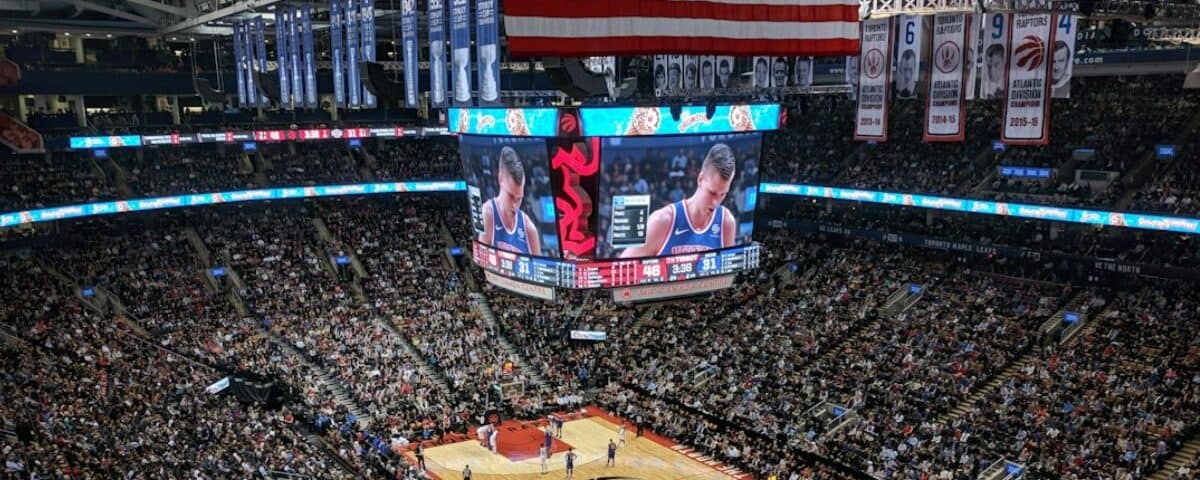In an unprecedented move, the National Basketball Association (NBA) announced that there would be No NBA games April 3, marking a significant shift in the league’s approach to Election Day. This decision underscores the NBA’s commitment to promoting civic participation and acknowledges the importance of giving players, staff, and fans the opportunity to exercise their democratic right to vote. By setting aside one of the busiest days in its calendar, the NBA sends a powerful message about the role that professional sports leagues can play in supporting the foundational aspects of democracy.
The decision is particularly noteworthy in the context of professional sports, where the calendar is tightly packed with games and events. It reflects a broader trend of increased social and political awareness among athletes and sports organizations. The NBA, with its diverse and globally recognized platform, is uniquely positioned to influence public discourse on civic engagement and social responsibility. This bold step has the potential to inspire similar actions across other leagues and sports, emphasizing the importance of active participation in the democratic process.
The Impetus Behind the Decision
The NBA’s decision to halt games on April 3 was driven by a desire to encourage greater voter turnout and facilitate the involvement of its community in the electoral process. Recognizing the challenges that come with balancing professional commitments and civic duties, the league aimed to eliminate potential barriers to voting for its players, staff, and fans. This move is a part of a larger effort by the NBA to leverage its platform for social good, reflecting the league’s commitment to civic engagement and social justice issues.
Player activism and advocacy played a crucial role in this decision, highlighting the growing influence of athletes in societal matters beyond the court. Many NBA players have become vocal advocates for change, using their platforms to raise awareness about various issues, including voting rights and political participation. The league’s decision to not schedule games on Election Day aligns with its broader objectives to support and amplify these voices, further establishing the NBA as a leader in promoting social responsibility and engagement among its stakeholders.
Impact on Teams and Fans
The absence of NBA games on April 3 presents a unique scenario for teams and fans alike. Teams will have to adjust their schedules to accommodate this break, which could impact the pacing and momentum of the season. However, this decision is expected to have a positive impact overall, fostering a sense of community and shared responsibility among players and fans. By encouraging participation in the electoral process, the NBA hopes to strengthen the bond between its teams and the communities they represent, highlighting the importance of civic engagement and collective action.
For fans, this break in the action offers an opportunity to focus on the importance of their civic duties without the distraction of game-day festivities. It also provides a moment of reflection on the power of collective action and the role that sports can play in encouraging societal participation. The positive outcomes anticipated from this decision extend beyond the immediate impact on voter turnout, aiming to inspire a more engaged and socially conscious fan base.
Broader Implications for Sports and Society
The NBA’s groundbreaking decision to forego games on Election Day could set a precedent for other professional sports leagues, signaling a shift in how sports organizations perceive their role in society. By prioritizing civic engagement over commercial interests, the NBA challenges its counterparts to consider the broader impact of their operations on the communities they serve. This move may encourage other leagues to explore ways they can support civic participation and social initiatives, potentially leading to a more socially responsible and community-oriented sports industry.
Furthermore, this decision reflects a growing recognition of the interconnectedness of sports, politics, and community life. It underscores the idea that sports organizations and athletes hold significant influence and bear a certain responsibility to use their platforms for the betterment of society. The NBA’s action on Election Day serves as a powerful example of how sports can transcend entertainment and contribute to the social and political fabric of the country.
Looking Forward: The NBA and Future Election Days
As the NBA looks to the future, its decision to support Election Day activities sets a new standard for civic engagement within the league and its wider community. The NBA has expressed its commitment to continue promoting civic participation and social responsibility among its players, staff, and fans. This includes exploring additional initiatives to encourage voting and political engagement, as well as partnering with organizations that aim to increase voter turnout and access to the polls.
The ongoing conversation about the role of sports organizations in societal issues is likely to evolve, with the NBA’s Election Day decision serving as a catalyst for further discussion and action. As society grapples with complex social and political challenges, the role of sports as a unifying force and a platform for advocacy becomes increasingly significant. The NBA’s initiatives around Election Day and civic engagement are just the beginning of a broader movement within the sports world to leverage influence for positive societal impact, showcasing the potential for sports to play a pivotal role in shaping a more engaged and informed society.


